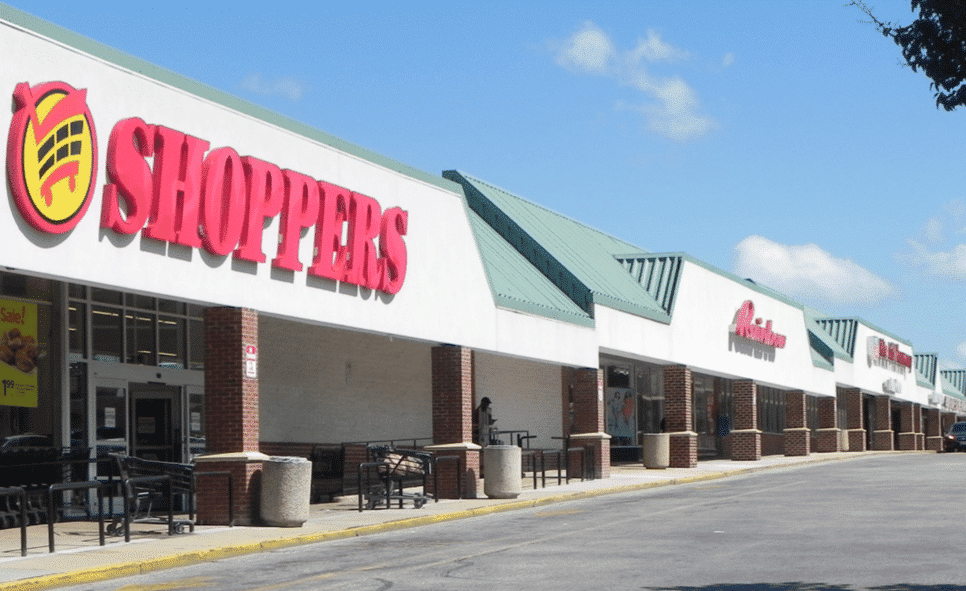After a 15-year period of store closings and corporate neglect, parent company UNFI has seemingly modified its corporate strategy towards Shoppers Food (formerly Shoppers Food Warehouse), the regional chain based in Bowie, MD that for many years held a significant share of the Baltimore-Washington market.
Actually, most of that neglect came under former owner Supervalu, which UNFI acquired in 2017 for $2.9 billion. On September 30, Shoppers cut the ribbon on new stores in The Alameda in Baltimore City and in Capitol Heights, MD. A third supermarket in Landover, MD will open next month. All three stores were once Shoppers supermarkets before UNFI sold them to Hispanic operator Compare Foods in 2020, which subsequently closed all three units earlier this year.
Later this month, Shoppers is also expected to complete upgrades of its supermarkets in Silver Hill and Forestville, MD. Those remodels will feature updated refrigerated and frozen cases, self-checkout lanes and new signage that the company said will offer a fresh take with a vintage flavor.
“Shoppers has a long-standing relationship with these communities, and we are excited to return to these neighborhoods and support residents with exemplary service and products of the highest quality, including fresh produce, meat, seafood, and everyday grocery items,” said Jeff Bleichner, vice president and general manager at Shoppers, who has been with retailer for 40 years. “These stores, along with our customer-first improvements at our Silver Hill and Donnell Street (Forestville) locations, reflect our commitment to invest in our communities to improve the health and quality of life of our customers through nutritious and delicious product offerings and friendly and attentive service.”
These three store openings reflect an abrupt change of direction for the regional chain that was originally founded and owned by Kenneth and Irving Herman in 1939 in Washington, DC. At that time, the supermarkets were bannered as Jumbo Food stores. By the 1980s, the Herman family, noting that the warehouse store craze had impacted business in other markets, changed its merchandising approach and name to Shoppers Food Warehouse (and later Shoppers Food & Pharmacy – the pharmacies closed in 2019). In the late 1990s, the company was acquired by drug and real estate firm The Dart Group, and then sold to Richfood, which was acquired by fellow wholesaler Supervalu in 2000. When Supervalu acquired most of Albertsons’ retail stores in 2006, its already existing retail operations – Shoppers and Farm Fresh – felt the pressure that came from Supervalu’s recent mega-retail and debt-laden purchase. As those larger former Albertsons banners, including Acme, Jewel/Osco and Shaw’s, began to struggle, the trickle-down effect was soon felt at the existing Supervalu-owned retail entities – Shoppers, Cub (formerly Cub Foods), Farm Fresh, Shop ‘n Save and Hornbacher’s. The impact on Shoppers was immediate as higher prices, mediocre merchandising and less than stellar store operations changed the consumer perception of a company that had continually gained market share in the B-W area from 1985 to 2006.
Things got even worse after UNFI acquired Supervalu and immediately stated that it intended to exit retail. Shop ‘n Save, Farm Fresh and Hornbacher’s were sold, mainly to competitors, in 2018. Even its most successful banner – Cub – began to lose share in its hometown Minneapolis-St. Paul, area and Shoppers would undergo more store shedding and corporate indifference – this time at a faster rate.
To wit: in the 2006 Food World market study, Shoppers ranked third among food retailers in all channels with 61 stores, annual sales of $1.8 billion and an 8.8 percent share of the Baltimore-Washington market. By early 2018 (before the UNFI purchase), Shoppers operated 51 stores, but annual revenue had shrunk to $1.47 billion and share had also declined to 5.3 percent.
However, in May 2020, then-CEO Steve (“Spinmeister”) Spinner, ordered a hold on sales of both Shoppers and Cub, so customers would have access to food during the COVID-19 pandemic.
While there has been a minimal number of store closings at Shoppers since COVID began, the company certainly didn’t plowed any significant investment into its discount operation, either. That corporate apathy led Shoppers to its worst performance since 1984 when the company had traded as Jumbo and operated nine stores only in the Washington area. In 2022, Shoppers now ranks 18th among all food sellers in the B-W market. Its store count (prior to the two new openings) had dipped to 19, annual sales dwindled to an estimated $567 million and its share sank to 1.7 percent of the $33.2 billion market.
So, do the three store openings and two other remodeled supermarkets indicate that a revival is on the horizon, or is this just an opportunity to reclaim stores on the cheap?


